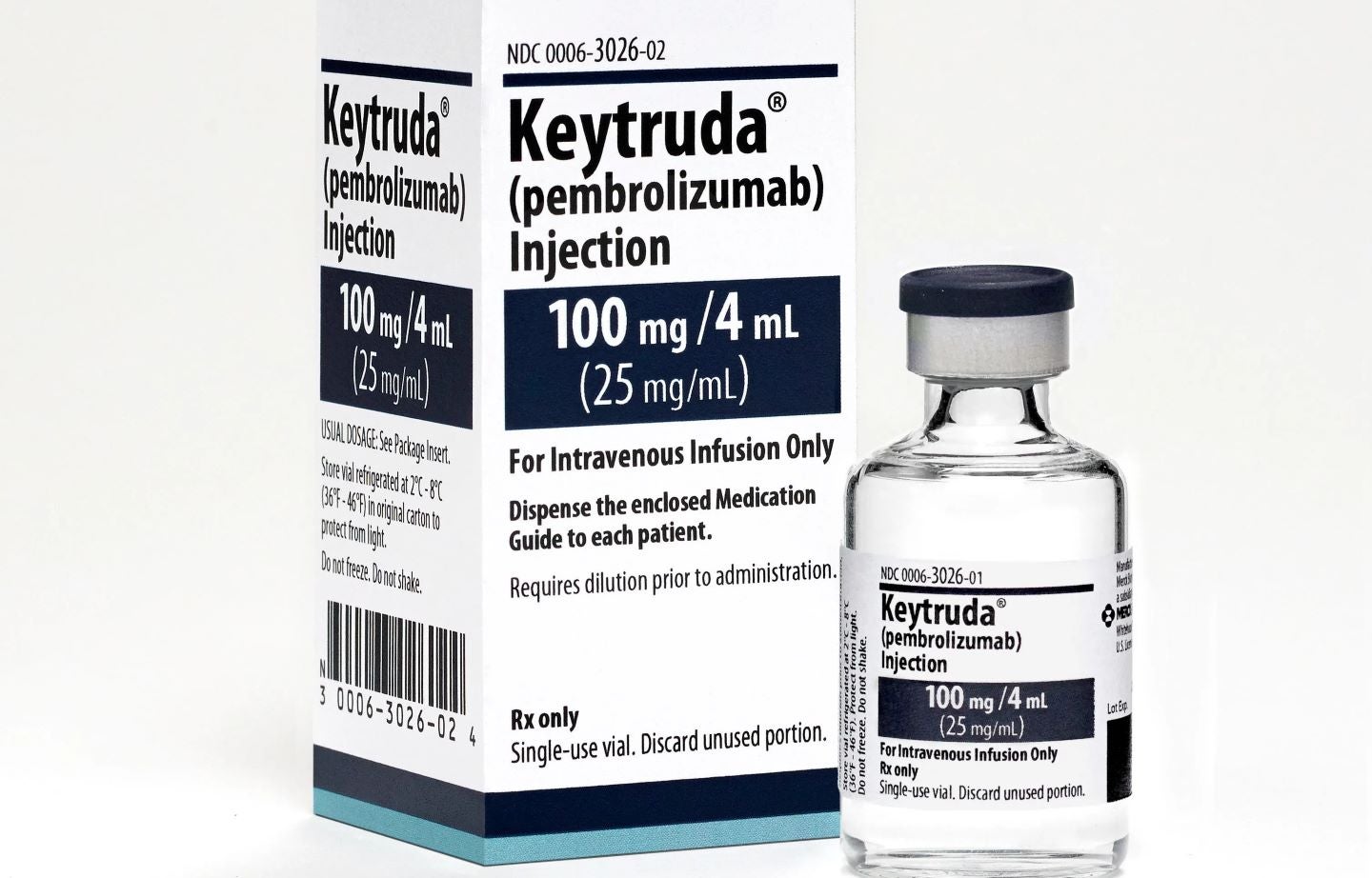
MSD has released data from the Phase III KEYNOTE-564 clinical trial of Keytruda, an anti-programmed death receptor-1 (PD-1) therapy, for the adjuvant treatment of renal cell carcinoma (RCC) patients.
The Phase III study demonstrated a significant improvement in overall survival (OS) for patients who received the therapy compared to those who were given a placebo.

Discover B2B Marketing That Performs
Combine business intelligence and editorial excellence to reach engaged professionals across 36 leading media platforms.
The double-blind, randomised KEYNOTE-564 study enrolled 994 subjects post-nephrectomy with RCC at intermediate-high risk, high risk, or with M1 no evidence of disease (NED).
Participants were randomised into a 1:1 ratio to receive either Keytruda or a placebo in the trial.
Disease-free survival (DFS) was the trial’s primary endpoint while secondary endpoints comprised OS and safety.
According to the latest third pre-specified interim assessment data, patients in the Keytruda arm exhibited a 38% improvement in OS versus the placebo group.

US Tariffs are shifting - will you react or anticipate?
Don’t let policy changes catch you off guard. Stay proactive with real-time data and expert analysis.
By GlobalDataThe estimated OS rate at 48 months was 91.2% in the Keytruda group versus 86% in the placebo arm. This OS benefit was consistent across various trial subgroups of patients.
Keytruda’s safety profile in the trial was in line with data from prior studies without any new safety signals detected.
Treatment-related adverse events (TRAEs) were observed in 79.1% of subjects in the Keytruda arm versus 53% in the placebo arm.
The DFS benefit, which was the trial’s primary endpoint, remained consistent with earlier reports, showing a 28% decline in disease recurrence or mortality risk in subjects who received Keytruda versus placebo.
Keytruda is approved as an adjuvant therapy to treat RCC patients in the US, the European Union, Japan and other countries, based on the DFS findings from the KEYNOTE-564 trial.
Merck Research Laboratories’ global clinical development oncology head and senior vice-president Dr Marjorie Green said: “The positive overall survival results from KEYNOTE-564 build upon the disease-free survival data, which supported approvals of Keytruda for this indication worldwide.
“This is the second Keytruda study to demonstrate a significant overall survival benefit in an earlier stage of cancer, and these new results add to the progress we’re making in earlier stages of the disease.”
Last month, the company announced plans to discontinue the Phase III KEYLYNK-008 trial of Keytruda plus Lynparza regimen to treat metastatic squamous non-small cell lung cancer due to futility.





